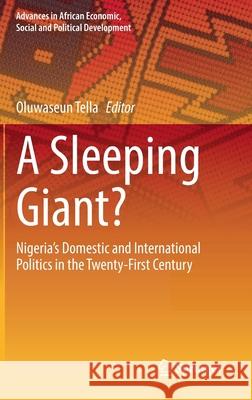A Sleeping Giant?: Nigeria's Domestic and International Politics in the Twenty-First Century » książka
topmenu
A Sleeping Giant?: Nigeria's Domestic and International Politics in the Twenty-First Century
ISBN-13: 9783030733742 / Angielski / Twarda / 2021 / 184 str.
A Sleeping Giant?: Nigeria's Domestic and International Politics in the Twenty-First Century
ISBN-13: 9783030733742 / Angielski / Twarda / 2021 / 184 str.
cena 443,82
(netto: 422,69 VAT: 5%)
Najniższa cena z 30 dni: 424,07
(netto: 422,69 VAT: 5%)
Najniższa cena z 30 dni: 424,07
Termin realizacji zamówienia:
ok. 22 dni roboczych
Bez gwarancji dostawy przed świętami
ok. 22 dni roboczych
Bez gwarancji dostawy przed świętami
Darmowa dostawa!
Kategorie BISAC:
Wydawca:
Springer
Seria wydawnicza:
Język:
Angielski
ISBN-13:
9783030733742
Rok wydania:
2021
Wydanie:
2021
Numer serii:
000469941
Ilość stron:
184
Waga:
0.45 kg
Wymiary:
23.39 x 15.6 x 1.27
Oprawa:
Twarda
Wolumenów:
01
Dodatkowe informacje:
Wydanie ilustrowane











